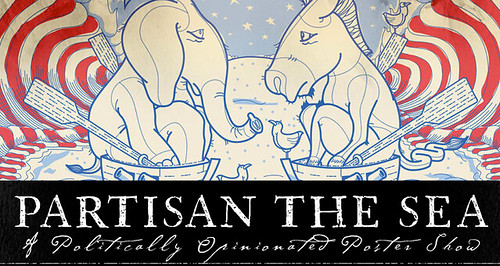Is political partisanship in your genes?
.
Utilizing quantitative genetic models, the authors examine the sources of party identification and the intensity of that identification. The results indicate genes exert little, if any, influence on party identification, directly or indirectly through covariates. However, we find that genes appear to play a pivotal role in shaping the strength of an individual’s party identification. Together with recent examinations of political attitudes and vote choice, these findings begin to provide a more complete picture of the source of partisanship and the complex nature of the political phenotype.
Source: “Is There a “Party” in Your Genes?” from Political Research Quarterly
And:
One of the strongest regularities in the empirical political science literature is the well-known correlation in parent and child partisan behavior. Until recently, this phenomenon was thought to result solely from parental socialization, but new evidence on genetic sources of behavior suggests it might also be due to heritability. In this article, the authors hypothesize that genes contribute to variation in a general tendency toward strength of partisanship. Using data collected at the Twins Days Festival, the authors compare the similarity of partisan strength in identical twins who share all of their genes to the similarity of partisan strength in nonidentical twins who share only half of their genes. The results show that heritability accounts for almost half of the variance in strength of partisan attachment, suggesting we should pay closer attention to the role of biology in the expression of important political behaviors.
Source: “The Heritability of Partisan Attachment” from Political Research Quarterly
Digests of posts:
Things you didn’t know about sex
How to quickly and easily improve your life
Things you didn’t know about sports
Things you didn’t know about happiness
Things you didn’t know about lies, liars and detecting lies
Things you didn’t know about negotiation, persuasion and influence





